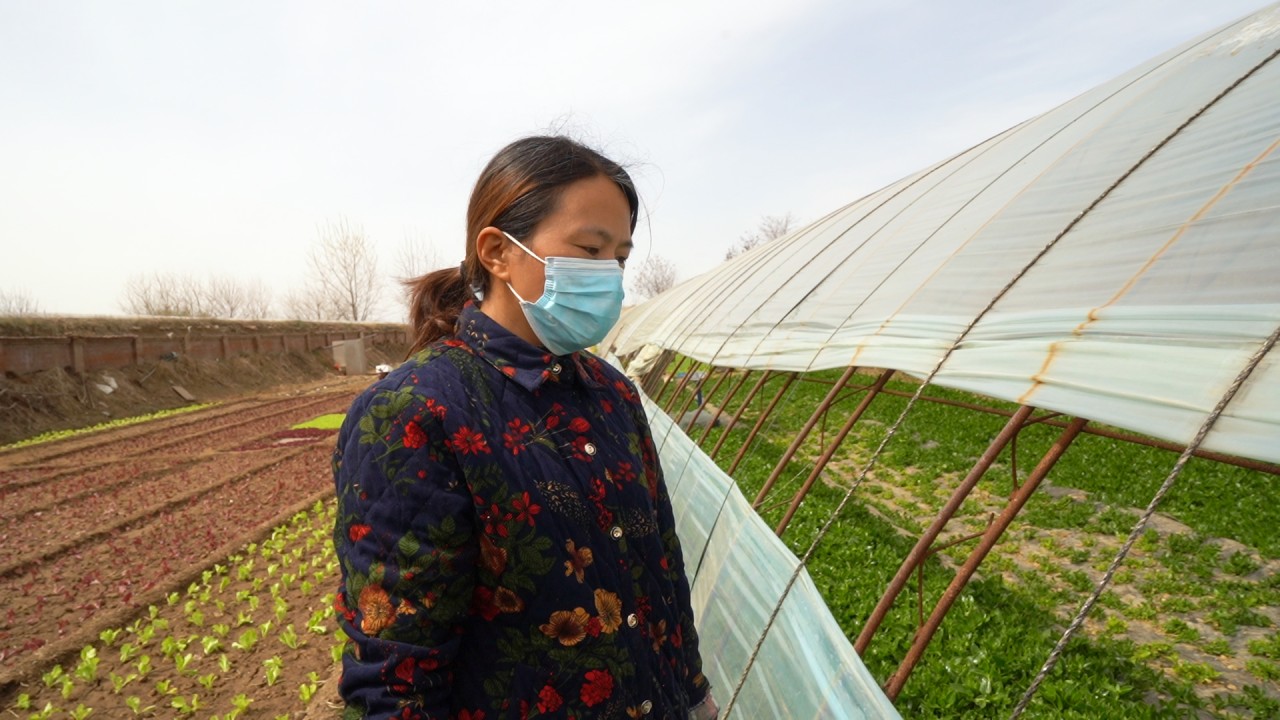
Coronavirus: China’s migrant workers determined to stay in cities as most see ‘no hope’ in rural hometowns
- Most migrant workers want to stay in big cities for education and health care, despite the economic impact of the coronavirus pandemic, a new survey shows
- But a lack of local residency permits, pressures on jobs and income make city living difficult for migrants who have been among the hardest hit by the outbreak
Most of China’s migrant workers will stay in cities despite the impact of the Covid-19 pandemic on jobs and incomes because there are fewer opportunities in their economically-backward hometowns, a new report has found.
“More migrant workers are forced to go to cities to make a living. To most of them, going to cities is the best of bad options, because there are no [opportunities] or hope left in their hometown,” said the report, which was based on a survey of 311 migrant worker families in 23 provinces.
Fully 58.84 per cent of the survey respondents said they would stay in the city no matter what happens to have access to better education for their children, well above the 22 per cent who said so in the organisation’s survey during the financial crisis.

04:53
Jobless struggle to make ends meet in Hong Kong as city battles coronavirus and recession
In addition to staying for better education, some of the migrant workers chose to live and work in big cities because they have chronic diseases and there was no access to good medical care in their hometowns, the report said.
The findings contrast with reports from state media like CGTN, which this month said as of end July local governments had created 13 million new jobs for migrant workers who returned from big cities, adding that 5 per cent of these were in new industries, such as live-streaming sales of agricultural products.
China has undergone the world’s broadest and fastest urbanisation in recent decades. By the end of 2019, more than 60 per cent of the Chinese population lived in towns and cities, a rise from 30 per cent two decades ago, official data showed.

05:19
Bartender to delivery man: a young Chinese worker’s changing fortunes amid the Covid-19 pandemic
City governments, afraid of the prospect of a huge increase in costs for social services, have largely blocked local residency permits for migrants.
Less than three years ago, Beijing even launched a clean-up campaign to evict migrant workers who had lived for years in the outer rings of the city. The capital city repeatedly denounced these migrants as “the low end population” in its official documents.
China had 288.36 million migrant workers as of the end of 2018, more than one third of the country’s entire working population, according to a report by the National Bureau of Statistics (NBS) last year.
And migrant workers are growing older, with an average age of 40.2 years and 22.4 per cent of the group now over age 50, the NBS report said. As workers grow older, they tend to stay closer to home, the government survey concluded.
The coronavirus has been a fatal blow to many of the migrant workers. For those who used up their savings by the end of February, some started to overdraw their credit cards or even to go to peer to peer lending
However, that does not mean these workers will go back to their rural villages. The average monthly income for migrant workers was about 3,721 yuan (US$542) at the end of 2018, while rural per capita income excluding remittances from migrant workers was only about 1,023 yuan, with average rural income in decline since 2014, according to government data.
For those who decide to stay in the cities to make a living, life is harder because of the impact of the pandemic. While China saw a sharp decline in economic output in the first three months of the year during coronavirus lockdowns, migrant workers were struggling to make ends meet.
“The coronavirus has been a fatal blow to many of the migrant workers. For those who used up their savings by the end of February, some started to overdraw their credit cards or even to go to peer to peer lending,” said Li Tao, the founder of Beijing Social Work Development Centre for Facilitators.

04:15
Chinese farmers see livelihoods threatened by coronavirus pandemic and related economic slump
A majority of migrant workers did not know about the coronavirus until January 25, when the Lunar New Year started and most villages across the country were suddenly sealed off and interprovincial transport was suspended, the report by Li’s organisation said.
After factories resumed production in April, there was a sharp decline in overseas orders, which affected businesses and delivered another blow to migrant workers, according to the report.

